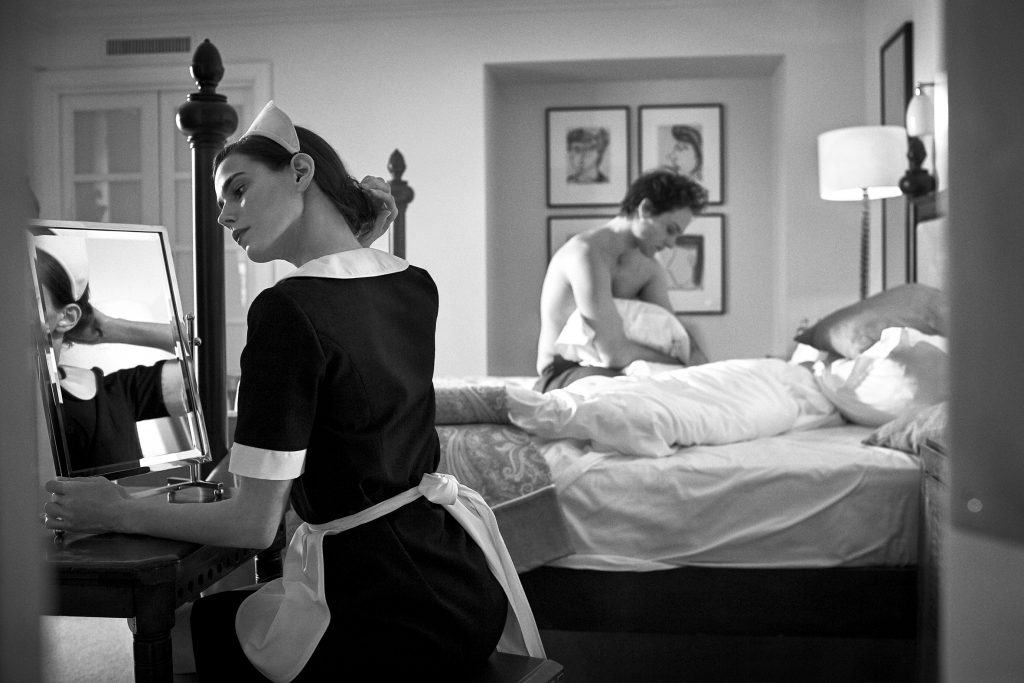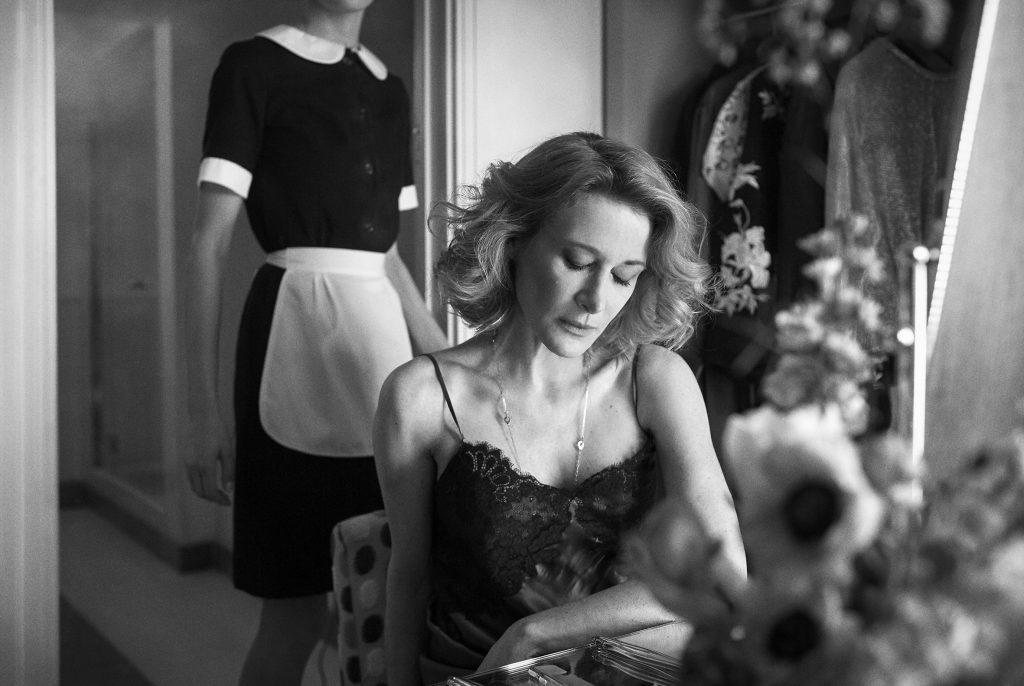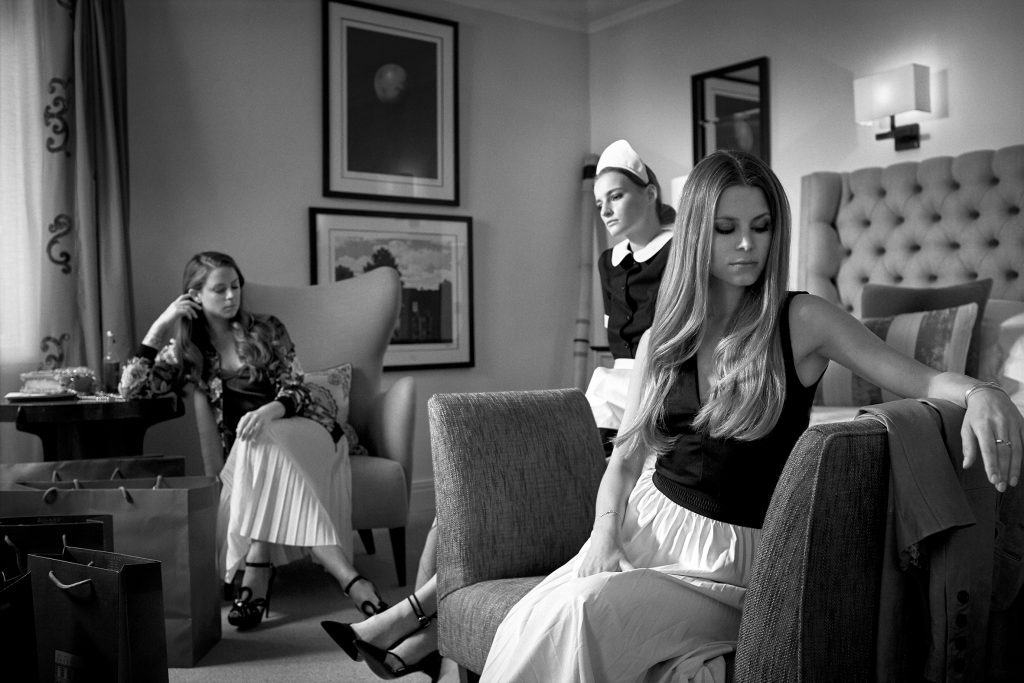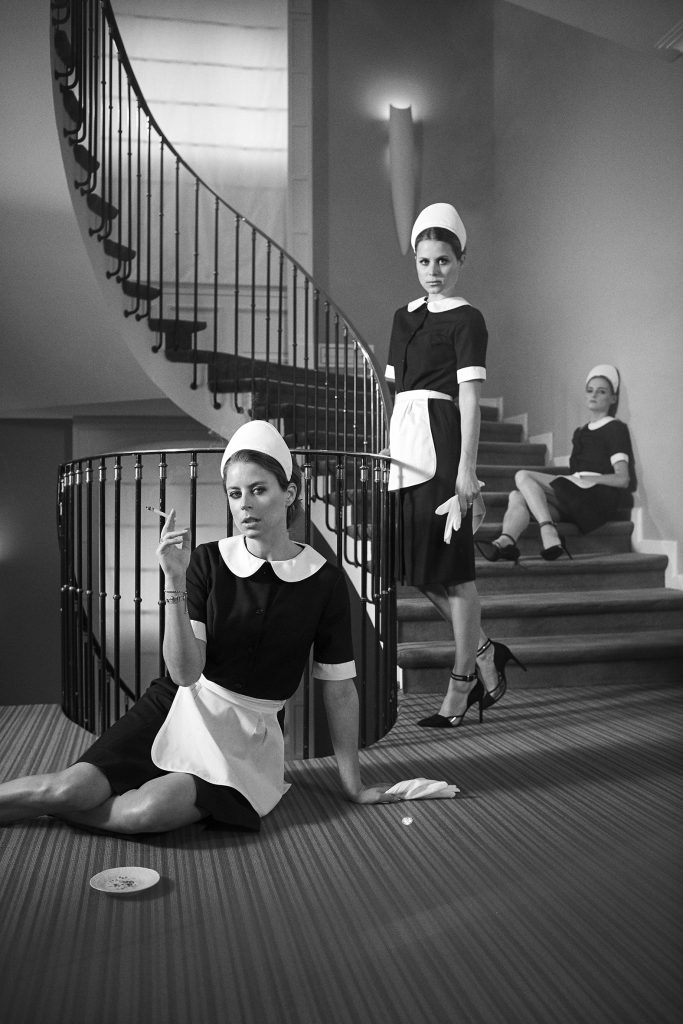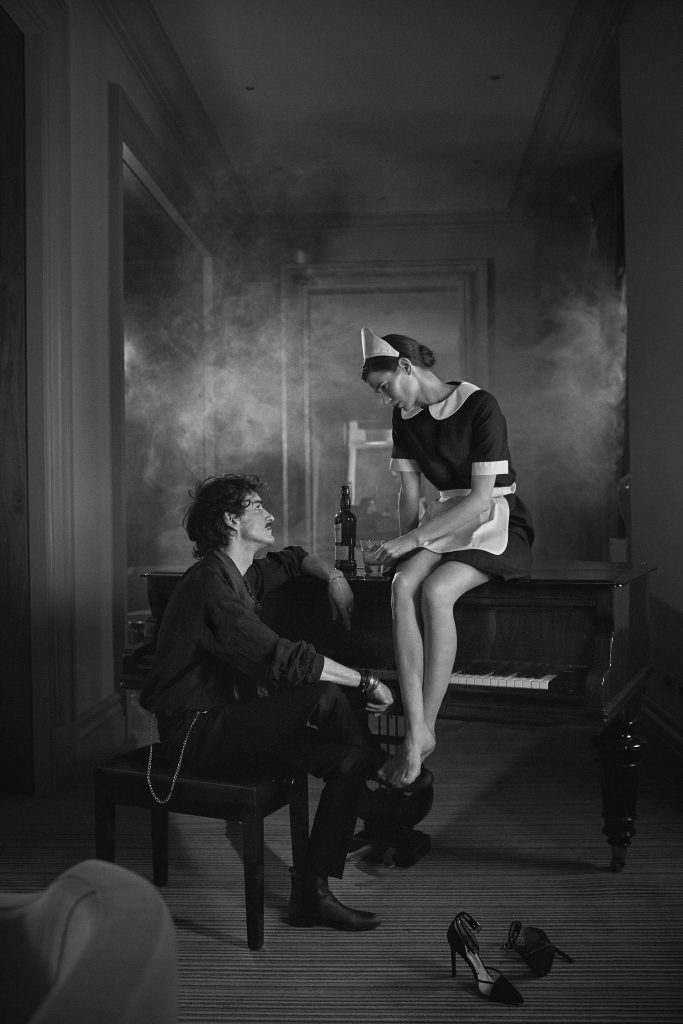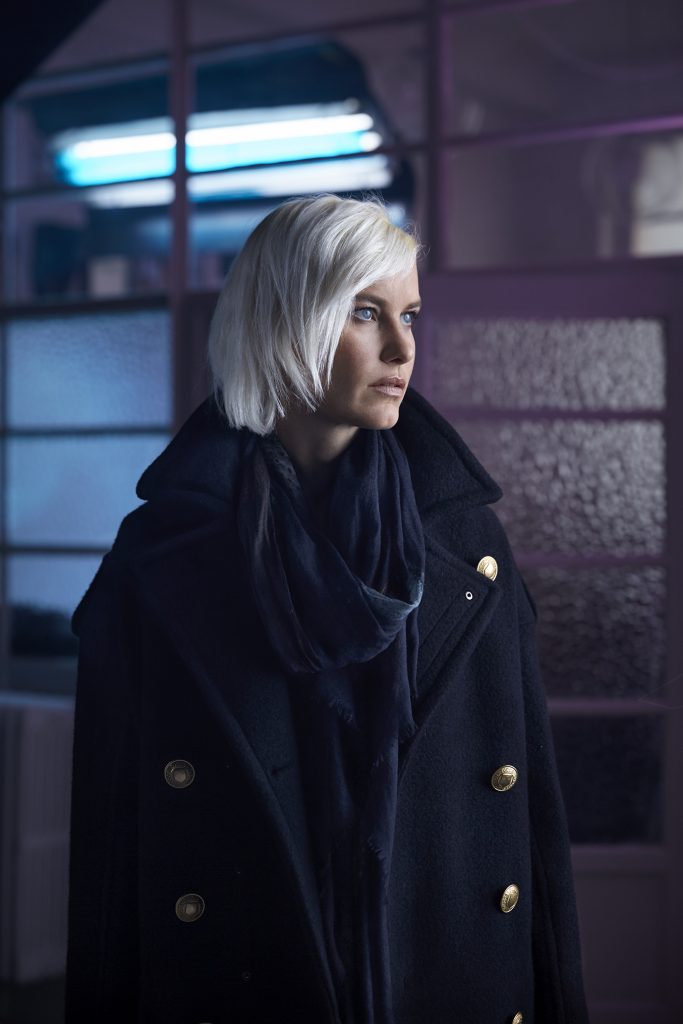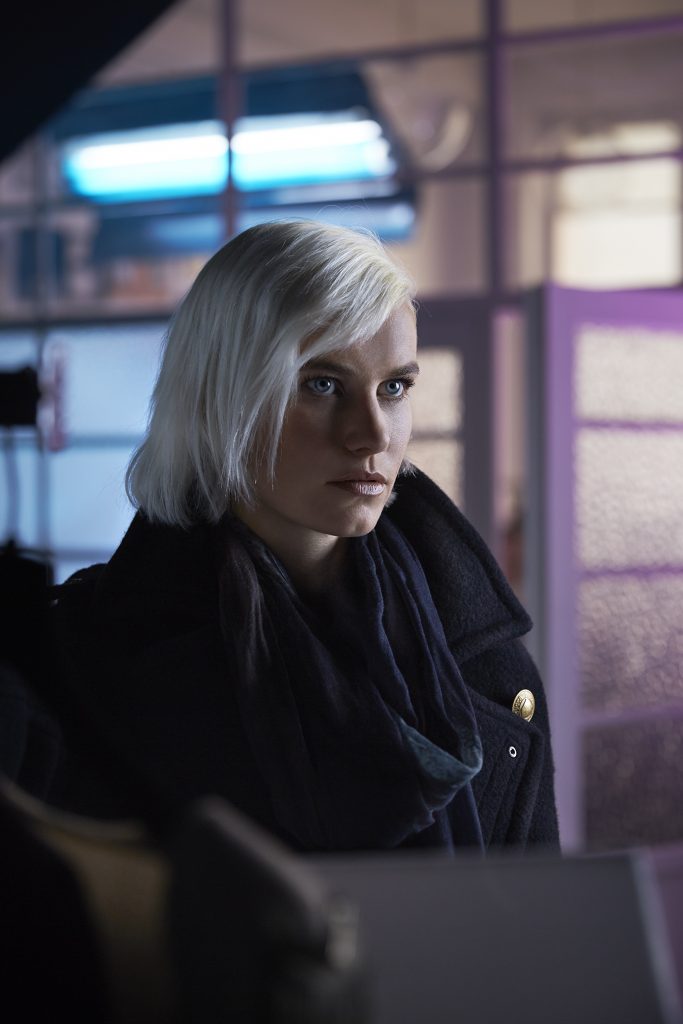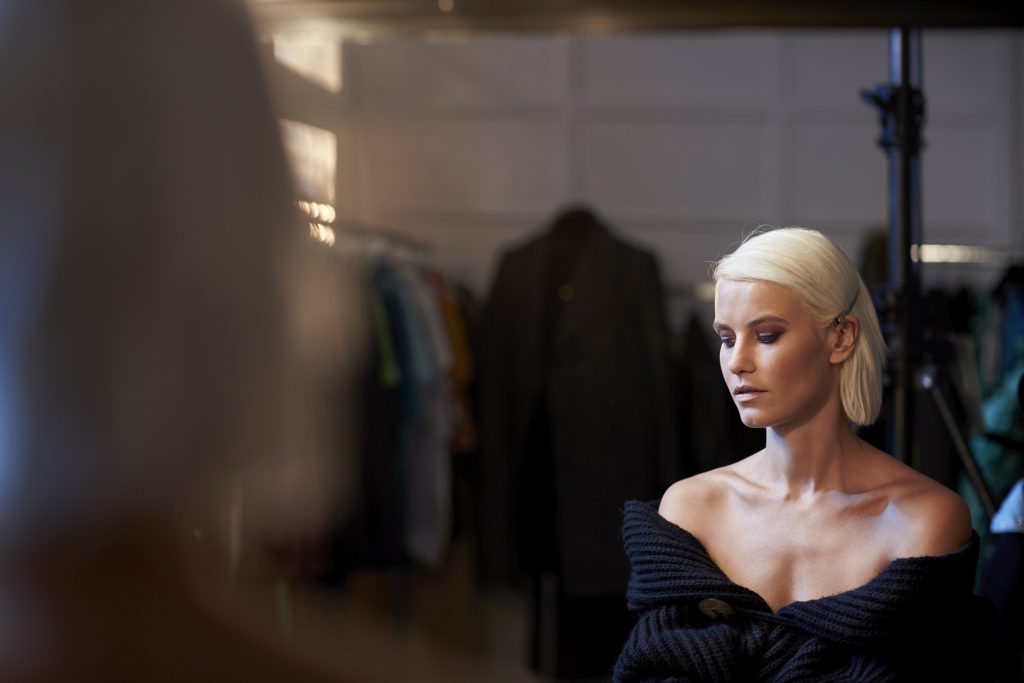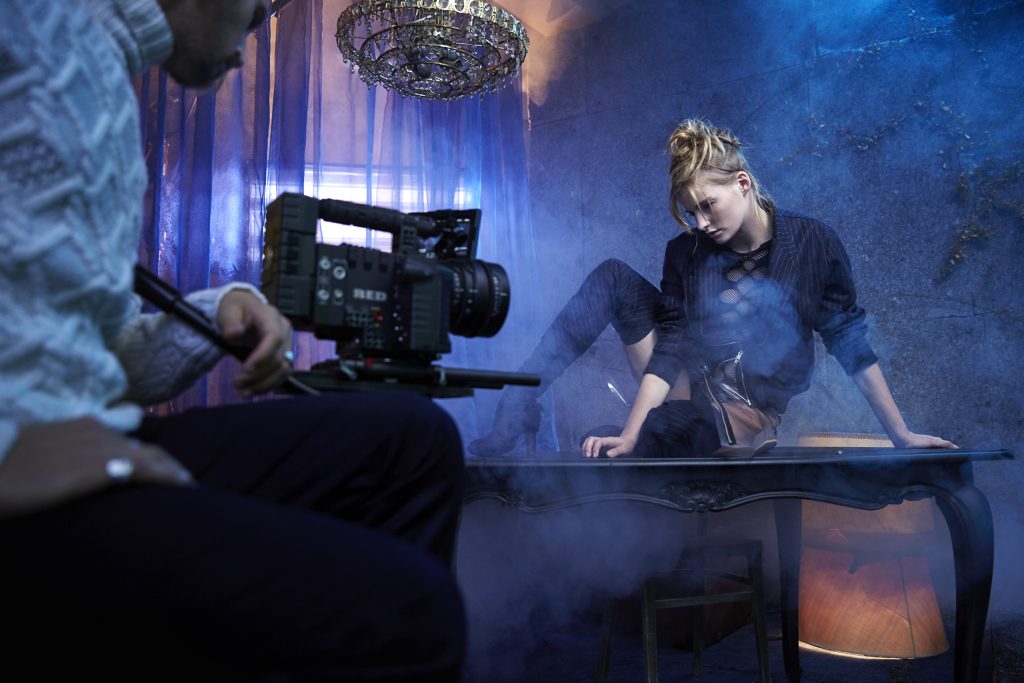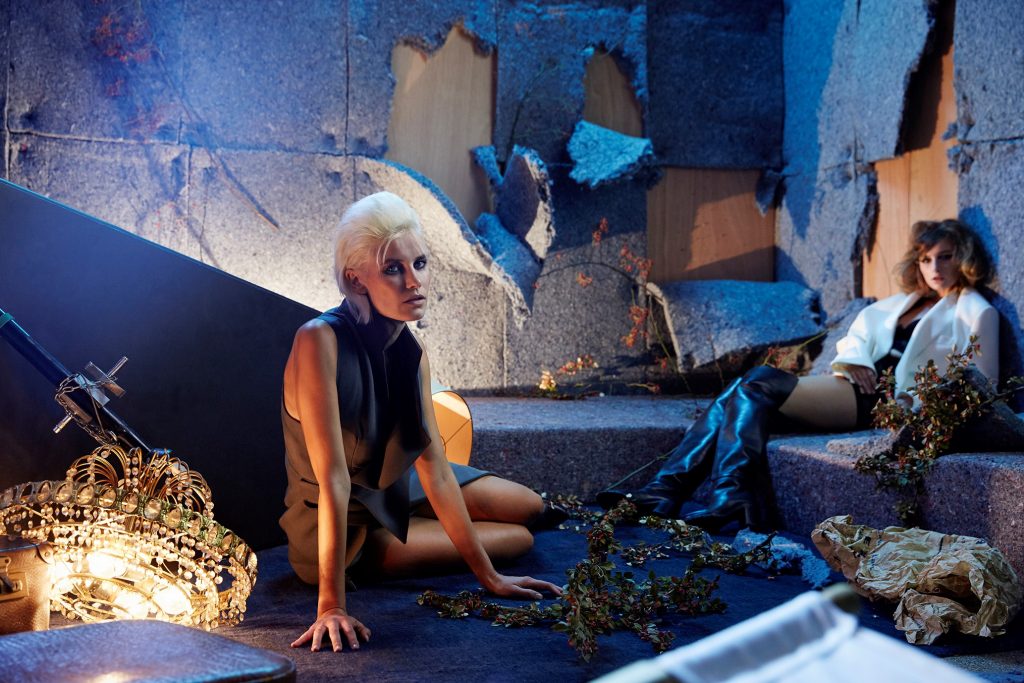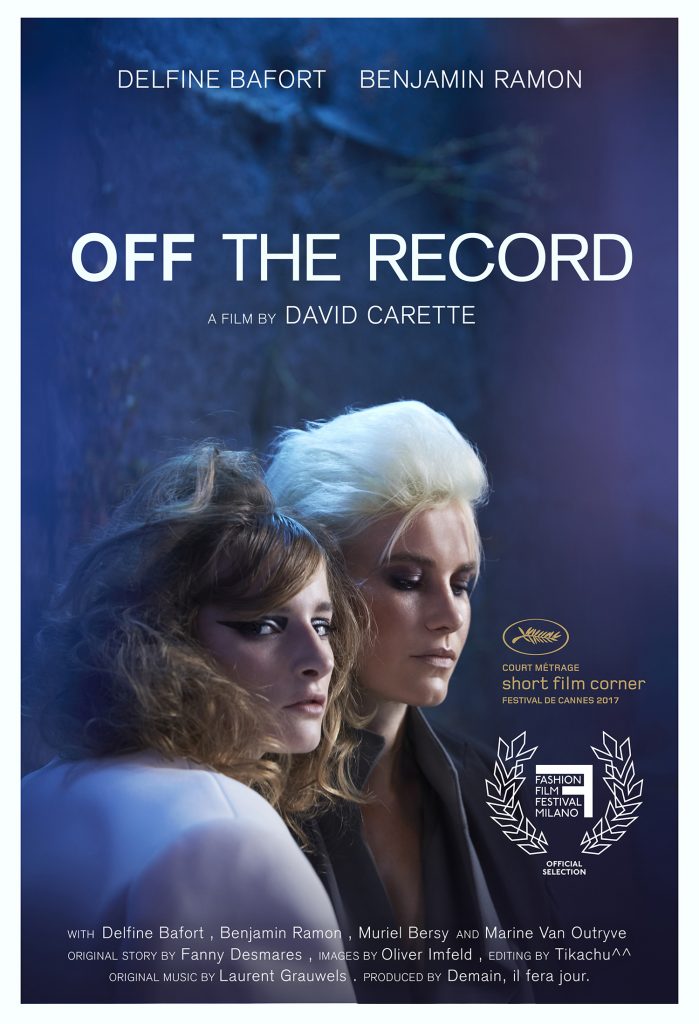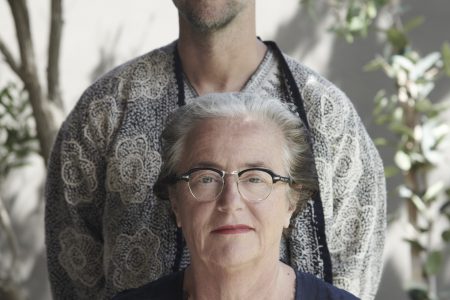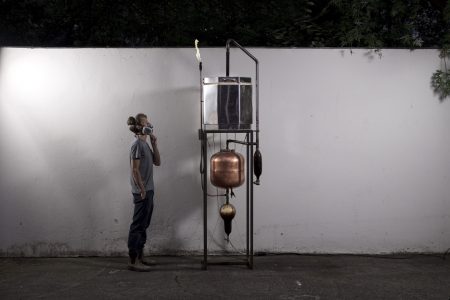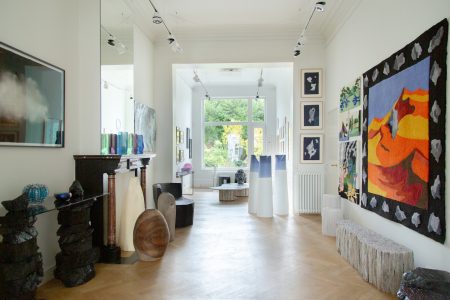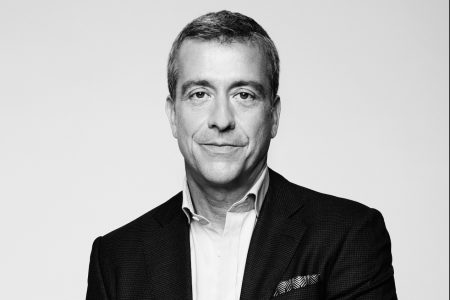
David Carette – Artistic audacity
Scenography, fashion shoots, artistic direction, video, photography, clothing design…. David Carette has always presented himself as a multi-facetted creative professional. Today the story is taking a new twist: he is finally daring to define himself as an artist.
TLmag: Over the past years, well before the term “hybrid” appeared on everyone’s lips, you were already working with photography, scenography, directing short films and even sweater design?
David Carette: In applied arts, unlike in the field of art, working with several media enhances your precision and enables you to offer a complete approach. At the start of my career, I distanced myself from photography, the medium I had studied. I first worked as a graphic designer and artistic director. It was in this way that I renewed my interest in light and, ultimately, came back to photography. Over the years, I had specialised in the art of combining disciplines, but also bringing together different talents to give a real richness to my projects.
TLmag: How do you select your projects?
D.C.: At this area, my working methods are not the same as a year ago. Over the years, I felt the need to concentrate on creative projects where I completely mastered the specifications. For the first time in my career, I am daring to define myself as an artist. This new approach – which takes me away from the projects I have carried out for Belgian and foreign clients – is the result of a long personal journey.
TLmag: How is this change of course manifesting itself?
D.C.: Through two major projects: last April, I presented my photographic work in the Hotel Amigo. The exhibition, titled Ciao’ Amigo, offered a fantastical vision of the hotel. I was telling a story. When I show images or video, I make sure the audience can create their own drama and, hopefully, have an emotional experience. I also realised Off the Record, a short film that was shown at several festivals, including Cannes and Milan.
TLmag: What motivates you in these artistic projects?
D.C.: Having a completely free rein. In the past, only certain clients – such as Mercedes – gave me full creative freedom. I could no longer collaborate today with brands that would restrict my creative process.
TLmag: You now have carte blanche for all your projects. As an artist does this blank page sometimes create anxiety?
D.C.: That’s never happened. Not before, not now. As an artist, I am no longer under pressure from timing. If I don’t like what I am creating, I go back and start again. My creative process is lighter, emotionally, but revealing the results of my artistic work is not as easy as I had expected. During the vernissage for my exhibition, I had doubts. I was afraid people would not understand my purpose.
TLmag: How would you explain your approach?
D.C.: My commitment is more about my approach, rather than the content or form of my work. I try to impart my messages in a less frontal way, to present them gently and preferably with a smile. Just as I have freed myself from purely commercial collaborations, I have set myself apart from the art trade. In the same vein, in order to maintain maximum independence, I wanted to self-produce my short film. At this point in my life, I want peace and freedom.
TLmag: Launched in 2013, your sweater brand, “Demain, il fera jour” (“tomorrow is another day”), which is also the name of your creative studio, is another way to be involved.
D.C.: The message itself was already strong. People understood it right away. I intend to launch a new sweater model by returning to the fundamentals of the brand and the immediacy of this message. Today, as an artist, I need to be rooted in the present and in a specific place, and to express myself as broadly as possible, rather than trying to convince those who do not subscribe to my purpose. In that sense, I am more relaxed. I am looking with interest at the new generation of creatives. I am proud to be part of the dynamic that is moving Brussels right now. I travel less, incidentally.
TLmag: Social networks have made some travel less necessary…
D.C.: They make it possible to reach an international audience, but I want to keep some distance from these modes of communication. When I organised my exhibition, for example, I did not want to reveal the images on the canvas. I wanted visitors to feel a first-hand emotion, without it being unveiled beforehand.
TLmag: An emotion that you also feel when you collaborate with other creatives or artists?
D.C.: Rather than multiple ephemeral collaborations, I am interested, when creating a video or short film, in developing a lasting relationship with my director of photography or musical composer. I like the idea of not being in competition with someone, but of rather building a rich, intense dialogue with them. That’s what transport me today.
« Off the Record », the short film by David Carette, can be viewed on YouTube and Vimeo from the beginning of December.
